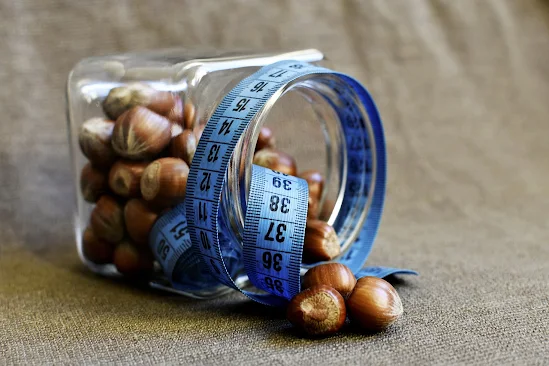H
ow to Gain Weight with a Healthy
Diet:According to Dietitians
Introduction:
Gaining weight can be just as challenging as losing it, especially when aiming to do so healthily. This guide provides effective tips, supported by expert insights, to help you increase weight through a balanced and nutritious diet.
Understanding Healthy Weight Gain:
Healthy weight gain focuses on building muscle and increasing body mass without excessive fat. The key is consuming more calories than your body burns while choosing nutrient-dense foods that provide essential nutrients.
Increase Caloric Intake:
Choose Nutrient-Dense Foods: Incorporate whole foods like nuts, seeds, avocados, and whole grains. Dr. Walter Willett from Harvard emphasizes, “Healthy fats and whole grains are crucial components of a balanced diet.” These foods not only provide calories but also supply vitamins, minerals, and healthy fats necessary for overall health.
Frequent Meals: Eating five to six smaller meals throughout the day helps maintain a steady intake of calories. Nutrition experts suggest that regular meals can prevent you from feeling overly full and make it easier to consume more calories overall.
Protein-Rich Foods:
Lean Proteins: Include chicken, turkey, fish, eggs, and legumes. Protein is essential for muscle growth and repair. Dr. Stuart Phillips, an expert in protein metabolism, notes, “Protein intake is crucial for muscle synthesis.” Adequate protein ensures that weight gain comes from muscle rather than fat.
Protein Shakes: Adding protein shakes or smoothies with nut butter, yogurt, and fruit can significantly boost your caloric intake. These shakes are convenient and can be tailored to include a variety of nutrient-rich ingredients.
Healthy Fats:
Incorporate Healthy Fats: Use olive oil, coconut oil, and consume fatty fish. “Essential fatty acids are crucial for overall health,” note researchers in dietetics. Healthy fats are calorie-dense, providing a significant energy boost, and support heart health and brain function.
Snack on Nuts and Seeds: Almonds, walnuts, and chia seeds are excellent snacks recommended by dietitians for healthy weight gain. They are portable, easy to incorporate into your diet, and packed with calories, protein, and healthy fats.
Complex Carbohydrates:
Whole Grains: Choose brown rice, quinoa, oats, and whole-grain bread for sustained energy. The American Dietetic Association states, “Whole grains are vital for a balanced diet.” They provide fiber, which aids digestion, and complex carbohydrates that help maintain stable energy levels.
Starchy Vegetables: Include potatoes, sweet potatoes, and corn. These calorie-dense options are packed with nutrients and are versatile in many dishes, making them excellent for healthy weight gain.
Strength Training:
Build Muscle Mass: Engage in regular strength training to ensure that weight gain is in the form of muscle rather than fat. Dr. Brad Schoenfeld emphasizes, “Resistance training is crucial for building muscle mass.” Muscle growth not only enhances your physique but also boosts metabolism.
Consistency: Aim for at least three strength training sessions per week, focusing on different muscle groups. Consistency in training helps optimize muscle growth and ensures balanced development.
Hydration:
Stay Hydrated: Drinking plenty of water is essential, but avoid consuming large amounts right before meals to ensure adequate nutrient absorption. Proper hydration supports digestion and overall health.
Caloric Beverages: Include milk or 100% fruit juice to add calories and nutrients. These beverages are an easy way to increase caloric intake without feeling too full.
Easy Diet Plan:
Breakfast: Scrambled eggs with spinach and whole-grain toast, plus a banana smoothie with peanut butter. This meal is packed with protein, healthy fats, and complex carbohydrates to start your day with energy.
Mid-Morning Snack: Greek yogurt with honey and mixed nuts provides a good balance of protein and healthy fats, keeping you full and energized.
Lunch: Grilled chicken breast with quinoa and roasted sweet potatoes, plus a side salad with olive oil dressing. This balanced meal offers lean protein, healthy carbs, and fats.
Afternoon Snack: Hummus with whole-grain pita and carrot sticks. This snack is rich in fiber and provides a good amount of calories from healthy fats.
Dinner: Baked salmon with brown rice and steamed broccoli, drizzled with olive oil. Salmon provides essential omega-3 fatty acids, while brown rice and broccoli add fiber and vitamins.
Evening Snack: Cottage cheese with pineapple or a protein shake with almond milk. This snack is a great source of casein protein, which helps with muscle recovery overnight.
Conclusion:
Gaining weight healthily involves a balanced approach with nutrient-dense foods, regular meals, and strength training. By following these tips, supported by expert insights, you can increase your weight sustainably and improve your overall health.
Call to Action:
Start incorporating these strategies into your routine and share your progress or tips in the comments below!










0 Comments